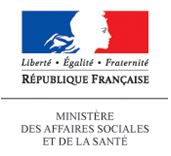Difference between revisions of "Anr vibrations"
| Line 28: | Line 28: | ||
Adaptive Waveform Learning: A Framework for Modeling Variability in Neurophysiological Signals Hitziger S., Clerc M., Saillet S., Bénar C, Papadopoulo T. | Adaptive Waveform Learning: A Framework for Modeling Variability in Neurophysiological Signals Hitziger S., Clerc M., Saillet S., Bénar C, Papadopoulo T. | ||
| − | [[File: | + | [[File:Logo anr.png]] |
| − | [[File: | + | [[File:Logo DGOS.png]] |
Revision as of 10:56, 21 September 2015
« Virtual Brain »-based interpretation of electrophysiological Signals in epilepsy (VIBRATIONS)
GOAL
The Vibrations project aims at modelling interictal networks in the Virtual Brain environment (thevirtualbrain.org ). It is funded by a joint ANR-DGOS grant (PRTS projet de recherche translationnelle: call).
MEMBERS OF THE CONSORTIUM
P1. INS U1106, INSERM, Aix-Marseille Université (http://ins.univ-amu.fr)
P2. Clinical Neurophysiology Department, Timone Hospital, AP-HM
P3 : Athena team, Sophia Antipolis
P4. Neurology Department, CHU Rennes
P5: LTSI INSERM U1099
PUBLICATIONS
Computational models of epileptiform activity. Wendling F, Benquet P, Bartolomei F, Jirsa V. J Neurosci Methods. 2015
Adaptive Waveform Learning: A Framework for Modeling Variability in Neurophysiological Signals Hitziger S., Clerc M., Saillet S., Bénar C, Papadopoulo T.

